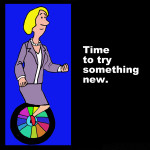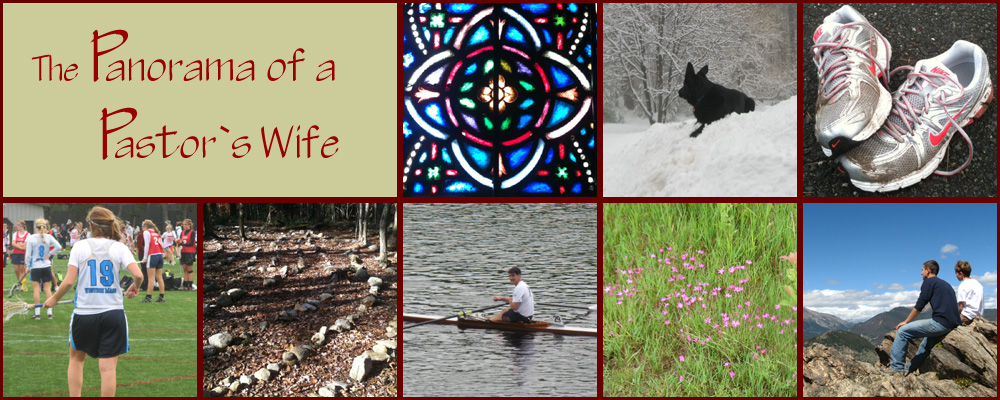Tell It Like It is, and I’ll Listen
“Is it LIT, Miss?”
That’s how one girl at school greets me on a daily basis now, knowing that I’m trying to get a handle on some of the teenage lingo swirling around the hallways. She’s amused by the fact that I’m keen to learn how they say things, and why. Some sophomore boys, picking up on my interest, have taken it upon themselves to give me mini-lessons, stopping by my office between classes. This, needless to say, lifts the quality of my workday considerably. Whether it will also slow my aging process at all, I can’t say yet.

I like to think I’m generally a curious person, and this might be enough to explain my eagerness to tune into this facet of high school life, but it’s probably also because I’m used to knowing that, even when we speak essentially the same language, we all have our “go-to” lists of words that help us be who we are.
In a moment, I’ll provide you with a short glossary of Most Used Terms by the students in Lawrence, partly just because I can. But first — a short reflection about the process of acquiring new vocabulary in a variety of circumstances, including having the good fortune to marry someone who brought with him a whole boatload of new (to me) words which would not fit the usual definition of “lingo” because, in fact, they are mostly very old.
When two people join together in marriage, each half generally contributes his or her own furniture and all kinds of other stuff; this is widely known. In addition, though, each person brings a certain familiarity with specific terminology— and knows nothing about whole pools of other kinds of words.
In the slightly unusual case of my husband and me, I’d have to say his contribution was a whole lot more formidable than mine. After all, he was carrying the whole history of the Episcopal Church across our threshold. If you take the origin all the way back to the Reformation and ol’ Henry VIII, and beyond that back to the Apostolic Age, you can put a whole lot of language in the mix.
So, right from the beginning, I started hearing words like “chalice” and “lectionary” and “diaconate” and “polity.” It was a virtual flood of new information, and I started to swim as best I could, though I rarely felt confident enough to use the words myself. Gradually, however, they began to color in the big shape that was his faith. Heck, I had to start somewhere.
If you take a trip to the official Glossary of the Episcopal Church, you’ll be able to see an alphabetized listing of terms with definitions, including many important personages. This is a very handy thing to have, if you’re a certain kind of clergy spouse.
Meanwhile, what terms did I bring to the newlywed table? Not many, in truth. OK, maybe “red-winged blackbird” and “bareback” and “pump fake” and, to get a little high-brow, “arpeggio.” In the realm of standout people, I would have definitely delivered Gordie Howe and Marvin Gaye, not to mention all the heroines from Shakespeare’s comedies.
You get the picture. In this partnership, I was definitely the one who had a clear row to hoe when it came to vocabulary acquisition. Soon enough, I realized that this would go better if I didn’t feel that I absolutely had to get it all. Instead, I would try to learn for the pleasure of learning, expand my horizons as I chose, have a little fun even, not operate under some sense of duty. Now, on a good day, I might be able to tell you what “kononia” means, but please don’t ask me to explain “narthex.”

Back in the land of school, I try to bring the same spirit. In truth, sometimes it’s embarrassing to be so monolingual in a place where most students can flip back and forth between two languages. Maybe that’s why I’ve become eager to learn some legitimate slang (no profanity, please). This is not as time-consuming as studying Spanish grammar, and there’s a creative spark that’s alive.
Here’s my working glossary, as of now:
Lit – Really positive, or a happening scene, as in “That party is gonna be lit.” (Note: If you go to URBAN DICTIONARY, things can get a little dicier, but this is the meaning from our hallways that I’m sticking with.)
Fire– Similar to “lit,” but to a more intense degree—top of the line, as in “That song was pretty good, but this song is fire!”
No Chill – Lacking a filter for what’s said, as in “He just went up to that girl and said that he doesn’t like her hairdo…that guy has no chill!’
Daps – Kind of handshake that includes a grasp and then a mutual sliding back of the hand. Not to be used at worksites, obviously.
Dab – Move on the dance floor that’s a sudden outstretch of one arm while the other one goes by the cheek; face goes in elbow. Not to be confused with “daps.”
Millyrock – Another staple of the dance floor, with one arm going over the other, repetitively, in front of the body.
L – Abbreviation for “loss” or recognition of some kind of minor defeat, as in, after somebody says or does something ridiculous, an observer responds with, “Just go and take your L.”
Yes, I understand that I need to maintain a certain mature demeanor in keeping with my position as a working adult. At the same time, I think it’s possible to “lean in” a bit and feel my soul expand. There’s a precedent, actually.

Talk about perfect timing: David Denby, film critic of The New Yorker, just wrote a book called Lit Up (Henry Holt and Company, 2016). It has nothing to do with parties and everything to do with teenage reading, of all things. Dostoyevsky, now that guy’s books are fire.


Go Miss! This post is fire because it’s hella insightful.
Kayshale-
Wow, I couldn’t ask for anything better than that….thanks so much! You and Steven are schooling me with just the right spirit.
Hi Polly – This was a great blog. I never thought about the joining of two people means also bringing new words into the mix. Tom and I both grew up in the Episcopal Church so, in the beginning, we were on a level playing field. Then he became a seminarian. I was his typist (starting with my manual typewriter and then – joy of joy – purchasing a new electric typewriter!) so I learned lots of new words. It’s kind of funny though that a lot of people in the church expect that I should know all “church words” and are surprised when I don’t. Really, Tom and I don’t spend much time in deep theological discussions!
What I had to learn was football terminology – and since I was never, and am still not, all that interested in football, his explanations often went (no matter how hard I tried to remember) in one ear and out the other. I have stopped asking about football. Golf, however, is of more interest to me. I don’t play, however I do have an appreciation for the game that I didn’t have 40 years ago!
I work in a private high school and I have to admit I have not heard any of the words on your list – maybe it’s a regional thing and they haven’t worked their way up to northern VT.
Thanks for writing, Polly. Hope to see you at some gathering or another.
Ann
Diocese of VT